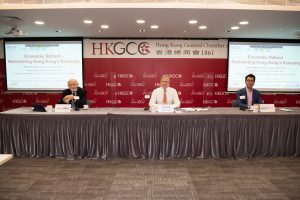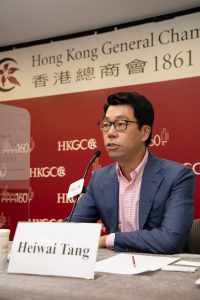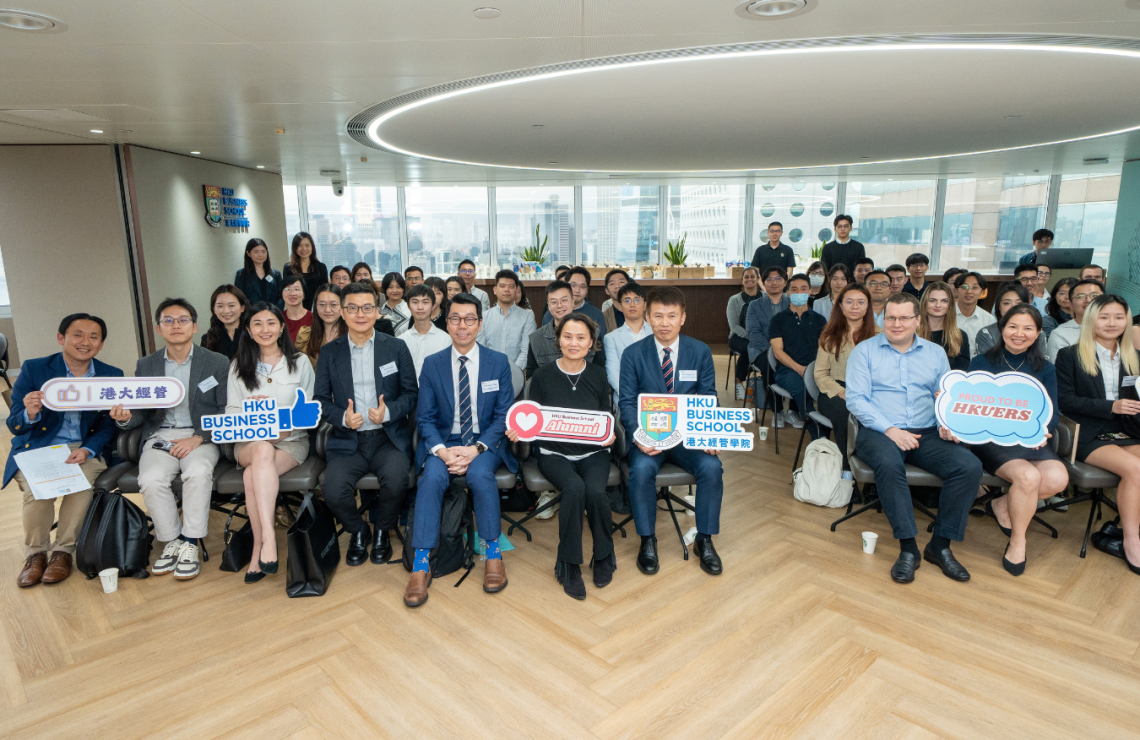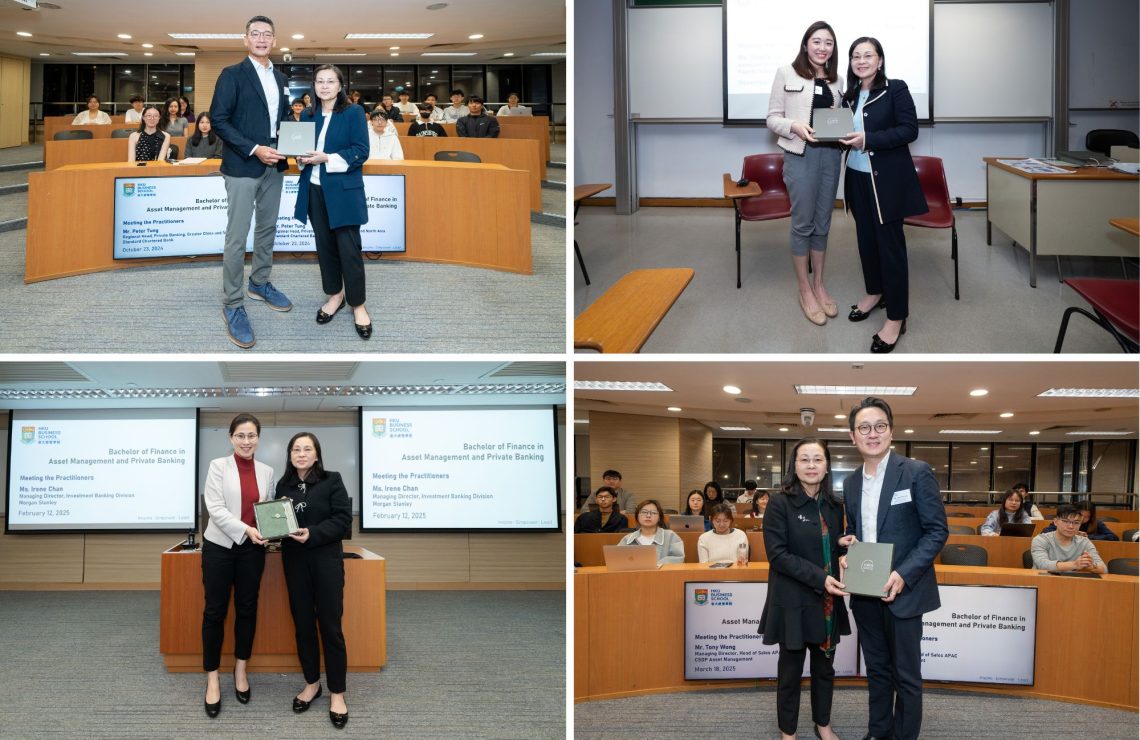HKU Business School Joins Hands with HKGCC to Launch a Webinars Series to Promote Ongoing Dialogue on Pressing Economic Issues

The first session of HKU Business School X HKGCC Webinar Series was held on July 13 in hybrid mode.
To celebrate its 20th anniversary milestone, HKU Business School has been implementing different initiatives to keep re-inventing itself, to advance the knowledge frontier and to create positive impact locally, regionally and internationally. From July onwards, the School joins hands with The Hong Kong General Chamber of Commerce (HKGCC) to launch a webinar series, with an aim of providing new insights and knowledge to rejuvenate the local economy and guide Hong Kong out of the current economic dilemma, promoting on-going dialogue among different stakeholders of the society.
The first session of the webinar series, themed as “Reinventing Hong Kong’s Economy”, was held on July 13, 2021 with more than 250 participants joined in hybrid mode. During the webinar, Professor Heiwai Tang, Professor in Economics, HKU Business School and Dr. Michael Spencer, the Chief Economist of Deutsche Bank discussed the way forward for Hong Kong to remain relevant and competitive in a post-covid landscape. The session was moderated by Mr. Tony Miller, Chairman of the Chamber’s Economic Policy Committee.
At the beginning of the session, Dr. Michael Spencer analysed a few key challenges for Hong Kong including the aging problem, climate change and the decline of share in global trade. In terms of the future trends, he expects a disappearance of border between Hong Kong and mainland China, and a continuously high price for local property in the future. Regarding these challenges and future changes in Hong Kong, he recommends an increase in research spending for Hong Kong to embrace the new “knowledge-based economy”, putting more focus on high-end services, advanced technology and intellectual property intensive activities.

Professor Heiwai Tang, Professor in Economics, HKU Business School shared his views to the local economy during the webinar.
“Hong Kong has been enjoying the benefit as a middleman during the period of ‘hyper-globalisation’ since 1949. However, it is now facing a huge challenge of deglobalisation (also being called as ‘slowbalisation’) and a declining role for helping mainland China to open the foreign market,” said Professor Tang. He also further elaborated some other kinds of challenges such as income and wealth inequality, imbalance income and living expenses, over-reliance on finance industry, limited labour mobility and shortage in housing market, etc.
To cope with these challenges, he has proposed some policy recommendations. He mentioned, “The third economic transformation requires a change in mindset and solutions to the talent shortage problem from both demand and supply side. There is also an urgent need for reindustrialisation, which can act as an effective tool to improve social inequity, increase job mobility, create positive externalities to other sectors, to complete the ecosystem of researches and manufacturing and also facilitate the integration of Hong Kong to the Greater Bay Area.”
During the panel discussion, a few heated topics in economic were discussed. Both of the speakers shared their insights on the topic of economic decoupling, reassurance and the four pillars industries during the discussion. The session ends with a Q&A session, and Mr. Miller concludes this fruitful discussion with a cliché but true quote to the Hongkongers: “Always plan for the best, and prepare for the worse”.







